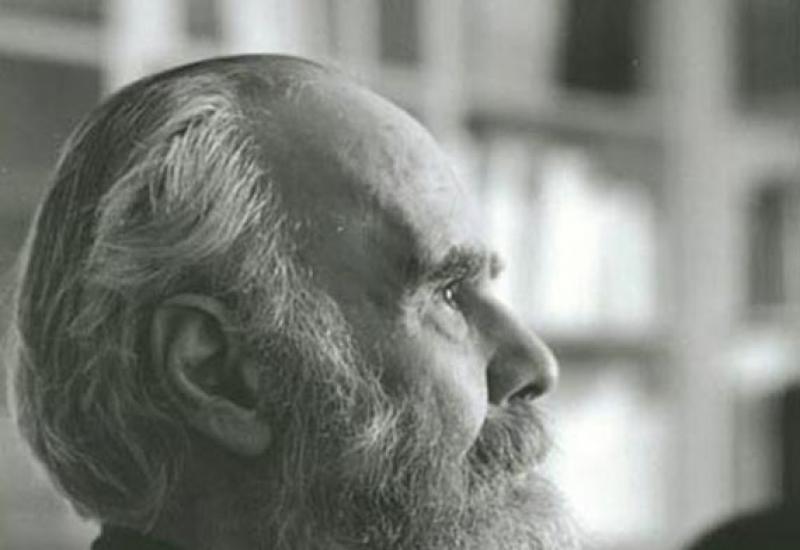The main qualities of Russian soldiers that even their enemies respect. Name the main qualities of the governor fairy tale (seven simeons) Appearance and spread
The chronicler puts the key points of the plot in the title. Starting to read the chronicle, from the very first lines we are interested in what the mentioned feat and cunning are manifested in? Both of these phenomena took place in the liberation of Rus' from the Pechenegs in 968 during the reign of Prince Svyatoslav. Then the residents of Kyiv were exhausted under the siege of the enemy and felt the end was imminent, since it was very difficult to ask for help.
From Kyiv he volunteered to risk his life for his fellow countrymen. He was the only one who agreed to go “to the lair” of the Pechenegs. If the enemies knew that in front of them was a man from a besieged city, they would, without hesitation, kill him. Nevertheless, the young man was given confidence by knowing the language of his enemies. This helped us get to the opposite bank of the Dnieper. The guy’s ingenuity helped protect the Russians from shedding blood, and that’s worth a lot. If the people of Kiev had tried to break through the obloga by force, it is unknown how great the human casualties would have been.
The young Kievite from the legend “The Feat of the Kievite Youth and the Cunning of the Governor Pretich” managed to swim across the Dnieper, and then this river was very wide. His dexterity and strength helped him get over to his unharmed people. The youth’s feat is not only what we can see and imagine, but also an internal victory of willpower over the cowardice or indecision that other residents of Kyiv experienced.
Cunning can be directed not only to harm, sometimes it is a companion to good intentions and deeds. An example of the latter is found in the chronicle story “The Feat of the Kiev Youth and the Cunning of Governor Pretich.” Svyatoslav's faithful husband, governor Pretich, managed to deceive the enemy. When Pretich learned that the people of Kiev were in trouble, on the second day at dawn he set off for the Pechenegs. When the Russians swam to the shore, their antimonies began to play. It seemed to the Pechenegs that Prince Svyatoslav himself was returning to this battle cry. But the wise governor did not stop there. He knew: if the truth was revealed to the enemies, they would go on the offensive. Pretich's small detachment would not have been able to cope with the Pechenegs. Therefore, the governor went ashore and, when questioned by the Pecheneg prince, said that Svyatoslav was returning for them with a large army.
With his cunning, he achieved not just the retreat of the enemy army, but a peaceful resolution of the conflict: “The Prince of Pecheneg said to Pretich: “Be my friend.” He replied: “I will do so.” And they shook hands with each other...” Out of fear, the Pechenegs left Kyiv, but went not far - to the shore of the Lybid. Then Svyatoslav completed the job.
I think that Pretich’s actions can be called not only the word “cunning”, but also the lexemes “resourcefulness” and “savvy”. The governor was able to calculate the enemy’s behavior in advance and direct him in the right direction in order to stall for time.
So, thanks to the smart, brave youth and the cunning commander, hundreds of people were saved. Their feat and cunning have been remembered for more than a thousand years, but they are truly worthy of such respect.
There are many legends about Russian soldiers; their exploits are known all over the world and command the respect of their fellow countrymen and citizens of other countries. The image of a Russian warrior is especially clearly formed from those qualities that characterize his opponents. Those who have encountered them in combat situations believe that Russians have a special set of traits, shaped by mentality, traditions and ethnic characteristics. So what qualities of our soldiers were most feared by our opponents?
The secret to the success of military operations
After the German army was able to destroy the French and British, whose armies were considered the strongest in Europe, in 1914 and 1940, but was defeated by the Russians during the Great Patriotic War, historians and military analysts began to wonder what the real reason was such outcomes? After a thorough analysis, experts came to the conclusion that it is not only a matter of equipment, modern weapons, tactical and technical training - the psychological and physiological characteristics of soldiers and officers, their national traditions, values and priorities play a huge role.
Fighting spirit
Many historians agree that it is in the mysterious fighting spirit that the secret of all the victories of the Russian army lies. This set of moral and psychological qualities determines combat effectiveness. During war, the morale of soldiers is supported by commanders. Raising morale is achieved by cultivating ideological convictions, cohesion, and courage. An integral part of building morale is an atmosphere of camaraderie and mutual assistance.
Fighting spirit determines the moral and physical readiness of soldiers to resist enemies, endure the hardships and hardships of military life, overcome themselves and constantly strive for victory. Napoleon also spoke about the importance of this quality: “One soldier with a high fighting spirit is worth three without this weapon.”
Determination and resilience
A Russian soldier always clearly knows what he is striving for. The ultimate goal of all actions is victory. Win every battle, every fight and ultimately win the war. As Europeans say about Russians, “for them there are no half measures - either everything or nothing.”
Studying episodes of military operations, analysts concluded that it was the determination of Russian soldiers that often played the role of a catalyst, because the most correct and balanced, but not completed, decision would ultimately lose in effectiveness to a spontaneous impulse, carried out with precision and logically completed.
Persistence is inherent in all Russian soldiers. In any battle, soldiers fight until their last bullet, their last breath. The Russians' tenacity in defense frightens their opponents. Thanks to this quality, many attacks and sieges were repelled.
Bravery
This quality of the Russian warrior is praised by many authors. Bravery is considered a national trait of the Russian person. The ability to save others at the cost of one’s own life, to throw oneself at tanks, to cover military shells with one’s body, realizing that this is necessary for the Motherland, for fellow countrymen, for future generations, is inherent in Russian officers and soldiers.
According to the confessions of those who met them in battle, “Russians boldly go to death, without fear or hesitation. They believe that if they are destined to die, death will find them anywhere. These people often say a strange phrase that two deaths cannot happen.” Russians despise cowardice just as other armies despise meanness.
The German military historian General von Poseck noted in his works: “The Russians often attacked our machine guns and artillery, even when their attack was doomed to defeat. They paid no attention either to the strength of our fire or to their losses.”
Coolness
The ability to maintain clarity of mind in any critical situation is another characteristic feature of Russian soldiers. The Russian soldier does not panic. On the battlefield, among killed and wounded colleagues, while under enemy bullets, he is able to collect his thoughts in a matter of minutes. There are many cases where, in a state close to death, soldiers took brilliant tactical actions and often emerged victorious from difficult situations.
A military observer for one of the Austrian newspapers considered composure to be one of the most striking features of the Russian military. He wrote: “Russian pilots are cold-blooded. The Russian attacks may lack order, just like the French, but in the air the Russian pilots are unshakable and can endure heavy losses without any panic. The Russian pilot is and remains a terrible adversary.”
Cohesion and solidarity
Both many years ago and now, Russians amaze everyone with their ability to unite in the most difficult situations. For foreigners, it is a real mystery how, at a time when everything is going very badly, Russians find strength, rise from their knees, and stand shoulder to shoulder. And at this moment they are able to resist enemies, confidently defending the interests of their country.
F. Engels noted: “There is no way to disperse the Russian battalions: the more menacing the danger, the more tightly the soldiers hold on to each other.”
This is still relevant today. The more dangerous the threat looming over the country and the Russian people, the stronger the desire to unite and fight for the Motherland without a shadow of a doubt.
Strength of will
Willpower is an integral trait of the Russian soldier. This ability to overcome difficulties helps to withstand harsh wartime conditions. Unbending willpower was reflected in various military episodes. Many Russian soldiers, officers, and partisans endured torture and bullying from their enemies to the end, but did not betray their Motherland, did not surrender, and did not give up secret information.
A Russian soldier is capable of enduring poverty and hardship for a long time. He can endure hunger, cold, and lack of basic living conditions for a long time.
1) Voivode- - military leader, ruler of the Slavic peoples. Known in Rus' since the 10th century. In the Russian state - at the head of a regiment, detachment (late 15th - early 18th centuries), city (mid-16th century - 1775), province - from 1719-1775. From the beginning of the 17th century. city governors replaced governors and city clerks, concentrating all power locally. The post of provincial governor was approved in 1719. The positions of city and provincial governors were abolished in 1775.
2) Voivode- - military leader in Ancient Rus'. Subsequently (from the end of the 15th century) governors were appointed commanders of the main regiments as part of the Moscow army. In the XVI-XVIII centuries. voivodes also stood at the head of local government in the Russian state and had in their hands the full extent of administrative and military executive power in the city and district (in the 18th century - in the provinces).
3) Voivode- - in pre-Petrine Rus', the head of the administration of a city and a district. Regimental governors led each of the regiments or detachments of the Russian army. The chief governor of the Big Regiment corresponded to the rank of Commander-in-Chief of the Russian Army
4) Voivode- - local ruler appointed by the king
5) Voivode- - military leader, often as a ruler, combining administrative and military functions. This term appeared in the 10th century. and is often mentioned in chronicles. Until the 15th century it designated either the commander of the princely squad or the leader of the people's militia. In the XV - XVII centuries. This was the name given to the commanders of regiments and individual detachments. In the 18th century By decree of Peter I, the title of “voivode” was abolished.
6) Voivode- - 1. In Kievan Rus state. official, representative of the princely power, head of the military garrison, who served as some adm. responsibilities; 2. Head of the local district level in the system of state bodies. management of Russia in the 2nd half. XVI century - 1775.
7) Voivode - (slav.: leader of the army), in Rus' this concept had a triple meaning: the head of the army, the highest local administrator and one of the subordinate bodies of local government. The first concept is ancient history until the 16th century; the second belongs to the 16th-17th centuries, when the governor replaced the previous governor, and the third appeared under Peter I. The governors of the ancient Russian princes led detachments of the princely squad. In the Moscow state, the Russian army for campaigning and battle was divided into 5 regiments: advanced, large, right hand, left hand and guard (rear). Each of these regiments was headed by one or more governors. Regimental governors were appointed by the sovereign. In addition to the regimental governors, the Russian army also consisted of: 1) the Ertaul governor, who commanded the light troops; 2) voivode from the shell, or chief of artillery and 3) voivode gulai - the head of the gulai-city. The commander of a large regiment was considered to be in charge. Under Peter, the title of military governor was destroyed, leaving only the title of civilian governor. In the XVI-XVII centuries. voivodship management becomes the system of the Moscow government, partly replacing the vicegerency system. Ivan IV began to appoint voivodes as the highest local administrators in 1555. At first, voivodes were appointed only to remote border towns, as to places that required military protection; then in the 17th century. they are already in all cities. Governors were appointed at the discretion of the tsar as a result of a petition, which was previously considered in the Tsar's Duma; the appointment itself went through the Rank Order or another, which was in charge of the voivodeship. The governors governed according to orders and had a wide range of activities. The subjects of the voivodeship administration can be subsumed under the following categories: 1) military affairs: recruiting troops, distributing salaries, appropriating service, etc.; 2) diplomatic affairs; 3) financial and economic affairs, which were limited, however, only to supervision, “looking”; 4) concerns about bringing prosperity and security to the people (for example, catching thieves, robbers and fugitives) and 5) judicial matters, for example, resolving civil cases up to 100 and even up to 500 rubles. Peter the Great abolished the voivodeship administration, replacing the voivodes with governors (1708). But later, after the division of the provinces into provinces (1719), Peter restored the voivodes as governors of the provinces and, therefore, assistant governors, and under his successors, voivodes were also appointed to individual cities - city and suburban voivodes. After the introduction of the Institution on the Governorates of Catherine II (1775), the governors and their offices were abolished. S. Yu.
8) Voivode- - military leader, ruler of the Slavic peoples. In the Russian state, the term "voevoda" meant the head of the princely squad or the head of the people's militia. Mentioned in Russian chronicles from the 10th century. At the end of the 15th - 17th centuries, each of the regiments of the Russian army had one or more governors. The regimental governors were liquidated by Peter I. From the middle of the 16th century. The position of city governor appeared, heading the military and civil administration of the city and district. From the beginning of the 17th century. were introduced in all cities of Russia instead of city clerks and governors. In 1719, voivodes were placed at the head of the provinces. In 1775, the position of voivode was abolished.
9) Voivode- military leader, ruler of the Slavic peoples. In Rus' - from the 10th century. In the Russian state - at the head of a regiment, detachment (late 15th - early 18th centuries), city (mid 16th century - 1775), province (1719-75).
Voivode
Military leader, ruler of the Slavic peoples. Known in Rus' since the 10th century. In the Russian state - at the head of a regiment, detachment (late 15th - early 18th centuries), city (mid-16th century - 1775), province - from 1719-1775. From the beginning of the 17th century. city governors replaced governors and city clerks, concentrating all power locally. The post of provincial governor was approved in 1719. The positions of city and provincial governors were abolished in 1775.
Military leader in Ancient Rus'. Subsequently (from the end of the 15th century) governors were appointed commanders of the main regiments as part of the Moscow army. In the XVI-XVIII centuries. voivodes also stood at the head of local government in the Russian state and had in their hands the full extent of administrative and military executive power in the city and district (in the 18th century - in the provinces).
In pre-Petrine Rus', the head of the administration of a city and a district. Regimental governors led each of the regiments or detachments of the Russian army. The chief governor of the Big Regiment corresponded to the rank of Commander-in-Chief of the Russian Army
Local ruler appointed by the king
A military leader, often as a ruler, combining administrative and military functions. This term appeared in the 10th century. and is often mentioned in chronicles. Until the 15th century it designated either the commander of the princely squad or the leader of the people's militia. In the XV - XVII centuries. This was the name given to the commanders of regiments and individual detachments. In the 18th century By decree of Peter I, the title of “voivode” was abolished.
1. In Kievan Rus state. official, representative of the princely power, head of the military garrison, who served as some adm. responsibilities; 2. Head of the local district level in the system of state bodies. management of Russia in the 2nd half. XVI century - 1775.
(slav.: leader of the army), in Rus' this concept had a triple meaning: the head of the army, the highest local administrator and one of the subordinate bodies of local government. The first concept is ancient history until the 16th century; the second belongs to the 16th-17th centuries, when the governor replaced the previous governor, and the third appeared under Peter I. The governors of the ancient Russian princes led detachments of the princely squad. In the Moscow state, the Russian army for campaigning and battle was divided into 5 regiments: advanced, large, right hand, left hand and guard (rear). Each of these regiments was headed by one or more governors. Regimental governors were appointed by the sovereign. In addition to the regimental governors, the Russian army also consisted of: 1) the Ertaul governor, who commanded the light troops; 2) voivode from the shell, or chief of artillery and 3) voivode gulai - the head of the gulai-city. The commander of a large regiment was considered to be in charge. Under Peter, the title of military governor was destroyed, leaving only the title of civilian governor. In the XVI-XVII centuries. voivodship management becomes the system of the Moscow government, partly replacing the vicegerency system. Ivan IV began to appoint voivodes as the highest local administrators in 1555. At first, voivodes were appointed only to remote border towns, as to places that required military protection; then in the 17th century. they are already in all cities. Governors were appointed at the discretion of the tsar as a result of a petition, which was previously considered in the Tsar's Duma; the appointment itself went through the Rank Order or another, which was in charge of the voivodeship. The governors governed according to orders and had a wide range of activities. The subjects of the voivodeship administration can be subsumed under the following categories: 1) military affairs: recruiting troops, distributing salaries, appropriating service, etc.; 2) diplomatic affairs; 3) financial and economic affairs, which were limited, however, only to supervision, “looking”; 4) concerns about bringing prosperity and security to the people (for example, catching thieves, robbers and fugitives) and 5) judicial matters, for example, resolving civil cases up to 100 and even up to 500 rubles. Peter the Great abolished the voivodeship administration, replacing the voivodes with governors (1708). But later, after the division of the provinces into provinces (1719), Peter restored the voivodes as governors of the provinces and, therefore, assistant governors, and under his successors, voivodes were also appointed to individual cities - city and suburban voivodes. After the introduction of the Institution on the Governorates of Catherine II (1775), the governors and their offices were abolished. S. Yu.
In 1830, A. S. Pushkin created five prose works, united under the common title “Belkin's Tales”. They are written in precise, clear and concise language. Among Belkin's Tales, The Station Warden was of exceptional importance for the further development of Russian literature. A very truthful image of a caretaker, warmed by the author’s sympathy, opens the gallery of “poor people” created by subsequent Russian writers, humiliated and insulted by the social relations of the then reality that were most difficult for the common man.
It is this surrounding reality that is to blame, it seems to me, for the tragic fate of the station guard Samson Vyrin. He had his only beloved daughter, the intelligent and agile Dunya, who helped her father with his work at the station. She was his only joy, but it was she who brought her father “gray hair, deep wrinkles on his long-unshaven face” and “a hunched back,” literally three or four years turned “a vigorous man into a frail old man.” At the end of his life, the stationmaster found himself abandoned by his daughter, although he himself does not blame anyone for this: “... you can’t avoid trouble; what is destined cannot be avoided.”
From childhood, his favorite knew how to flirt, spoke “without any timidity, like a girl who has seen the world,” and this attracted passing young people, and one day she ran away from her father with a passing hussar. Samson Vyrin himself allowed Dunya to ride with the hussar to the church: “blindness came over him,” and then “his heart began to ache and ache, and anxiety took possession of him to such an extent that he could not resist and went to mass himself.” Dunya was nowhere to be found, and the coachman who returned in the evening reported: “Dunya went on from that station with the hussar.” The old man fell ill from this news and because he learned that the hussar had pretended to be sick and was already planning to take Dunya away.
Samson Vyrin went to St. Petersburg in the hope of finding and picking up his daughter, but Captain Minsky did not give him Dunya and kicked him out the door, putting money up his sleeve. Vyrin made another attempt to see his daughter, but Dunya, seeing him, fainted, and Minsky again kicked him out. In the tragic fate of the stationmaster
The class division of society is also to blame, allowing higher ranks to cruelly and rudely treat people of lower ranks. Minsky considered it natural for himself to simply take Dunya away (and not even ask her father for her hand in marriage), and drive out the old man, and yell at him.
The tragedy of Samson Vyrin is that in his declining years he was left completely alone, shedding tears for his lost daughter. Not for his grandchildren, but for strangers, he carved pipes; he fussed with other people’s children and treated them to nuts. The tragedy of his situation is that his beloved daughter came to him not during his lifetime, but after his death. From the story it is clear that Minsky really loved Dunya and did not abandon her, she had a happy and prosperous life. "Beautiful lady... was driving... in a carriage of six horses, with three small chaps and a nurse." Having learned “that the old caretaker had died... she cried” and went to the cemetery. Dunya is also to blame for her father’s tragic fate. She left him, she acted inhumanely. I think the thought of this haunted her - after all, she came, albeit late, to her father, who died alone, forgotten by everyone, and by his own daughter too.
In very simple and understandable words, Pushkin showed us the tragic fate of an ordinary person - the station guard Samson Vyrin, and I am very sorry for this old man....














